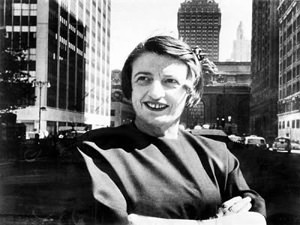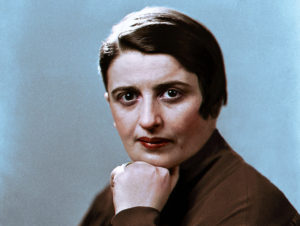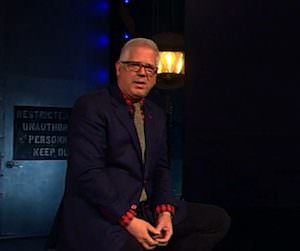Ayn Rand Revisited
Two new biographies about the irascible and idiosyncratic Ayn Rand, objectivist philosopher and ham-fisted mistress of the capitalist morality tale, show how her rocky Russian childhood and her subsequent self-reinvention campaign in America (partly conducted in Hollywood, of course) influenced her work, and how her ideas led to her own undoing.
Two new biographies about the irascible and idiosyncratic Ayn Rand, objectivist philosopher and ham-fisted mistress of the capitalist morality tale, show how her rocky Russian childhood and her subsequent self-reinvention campaign in America (partly conducted in Hollywood, of course) influenced her work, and how her ideas led to her own undoing. –KA
Your support matters…Slate:
Alisa Rosenbaum (her original name) was born in the icy winter of czarism, not long after the failed 1905 revolution ripped through her home city of St. Petersburg. Her father was a self-made Jewish pharmacist, while her mother was an aristocratic dilettante who loathed her three daughters. She would tell them she never wanted children, and she kept them only out of duty. Alisa became a surly, friendless child. In elementary school, her class was asked to write an essay about why being a child was a joyous thing. She instead wrote “a scathing denunciation of childhood,” headed with a quote from Pascal: “I would prefer an intelligent hell to a stupid paradise.”
But the Rosenbaums’ domestic tensions were dwarfed by the conflicts raging outside. The worst anti-Jewish violence since the Middle Ages was brewing, and the family was terrified of being killed by the mobs—but it was the Bolsheviks who struck at them first. After the 1917 revolutions, her father’s pharmacy was seized “in the name of the people.” For Alisa, who had grown up surrounded by servants and nannies, the Communists seemed at last to be the face of the masses, a terrifying robbing horde. In a country where 5 million people died of starvation in just two years, the Rosenbaums went hungry. Her father tried to set up another business, but after it too was seized, he declared himself to be “on strike.”
The Rosenbaums knew their angry, outspoken daughter would not survive under the Bolsheviks for long, so they arranged to smuggle her out to their relatives in America. Just before her 21st birthday, she said goodbye to her country and her family for the last time. She was determined to live in the America she had seen in the silent movies—the America of skyscrapers and riches and freedom. She renamed herself Ayn Rand, a name she thought had the hardness and purity of a Hollywood starlet.
Independent journalism is under threat and overshadowed by heavily funded mainstream media.
You can help level the playing field. Become a member.
Your tax-deductible contribution keeps us digging beneath the headlines to give you thought-provoking, investigative reporting and analysis that unearths what's really happening- without compromise.
Give today to support our courageous, independent journalists.






You need to be a supporter to comment.
There are currently no responses to this article.
Be the first to respond.